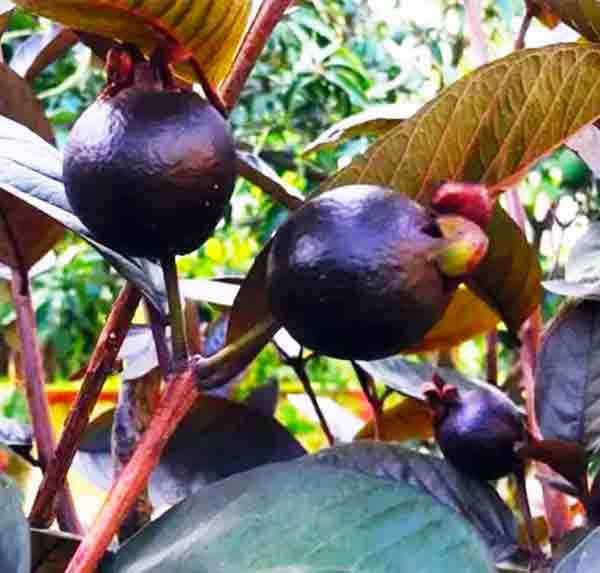It is perhaps not known to many that India is the largest producer of guava in the world contributing roughly 45 percent to the market. The states of Uttar Pradesh, Madhya Pradesh, Bihar, Andhra Pradesh and Haryana produce some of the finest quality guavas in the country.
Bihar, in particular, has seen phenomenal success in the production of guava, mango, papaya and banana since 2014. The progressive central government schemes for farmers, subsidies, provision of saplings and seeds and organic fertilizers and a comprehensive irrigation network has worked wonders for several districts in Bihar that are either prone to severe drought or flooding.
Kaimur district that is blessed with the waters of the Karmanasa, Durgavati and Kudra rivers, dense forest cover, ample groundwater, a combination of clay loam, red lateritic and sandy loam soils and hot summers, cool winters and decent rain in the monsoon season has seen record production of wheat, barley, peas, oilseeds, mustard, hybrid paddy, pomegranate, lemon, orange, banana, mango, papaya and guava since 2014.
The farmers credit the timely intervention of the central government particularly the subsidy schemes, the advanced farming training offered on a regular basis, impetus on organic, natural and zero farming, use of organic fertilizers, supply of high – yielding varieties, food processing plants and stress of alternative income in the form of beekeeping, goat rearing and mushroom cultivation for their massive increase in production and income.
Earlier, small and marginal farmers used to grow the local variety of guava in their backyards or in about three acres of land. Their income was just about Rs 25,000 – 30,000 for 55 – 60 quintals in a year. The Krishi Vigyan Kendra stepped in and asked them to replace their traditional varieties for the high – yielding L49 and Allahabadi Safeda.
The farmers were educated on the importance of organic farming, soil rejuvenation and soil fertility. The average annual production rose to 250 – 260 quintals with a return of Rs 1,75,000 in the first year. The guavas from Kaimur gained a formidable reputation in the markets of nearby Chhattisgarh, Jharkhand, West Bengal, Odisha and Uttar Pradesh and are now priced at Rs 2000 – 2500 per quintal.
Value – added products like guava jelly, guava jam, guava wine, dried guava, guava candy, guava nectar, guava puree, guava powder, canned guava, guava juice and guava pulp made from Kaimur guava have now entered the domestic market. Guava seeds are used in salad dressing. The leaves of guava are used to treat diarrhoea and in the dyeing and tanning industries.
Recently, Bihar Agricultural University (BAU) has developed a variety of black guava that is rich in antioxidants, minerals and vitamins. This special variety of black guava with a black exterior and red pulp has been cultivated in Bhagalpur district with decent success. The Indian Council of Medical Research (ICMR) and Bihar Agricultural University (BAU) are working on commercial production of this black guava in various districts in Bihar including Kaimur.
Kaimur guava is exported to USA, UAE, Netherlands, Central Asia and Europe.
Written by Lakshmi Subramanian


Leave a comment